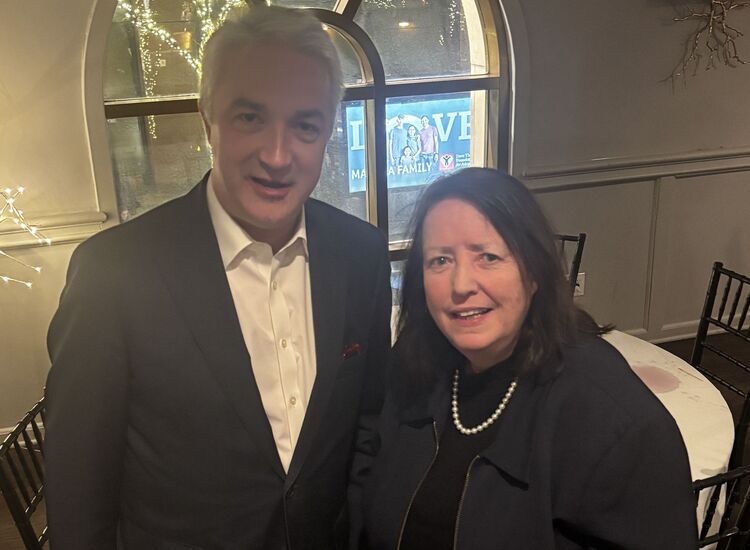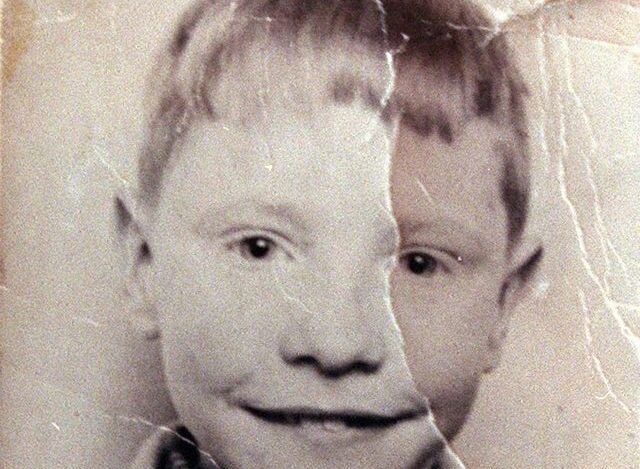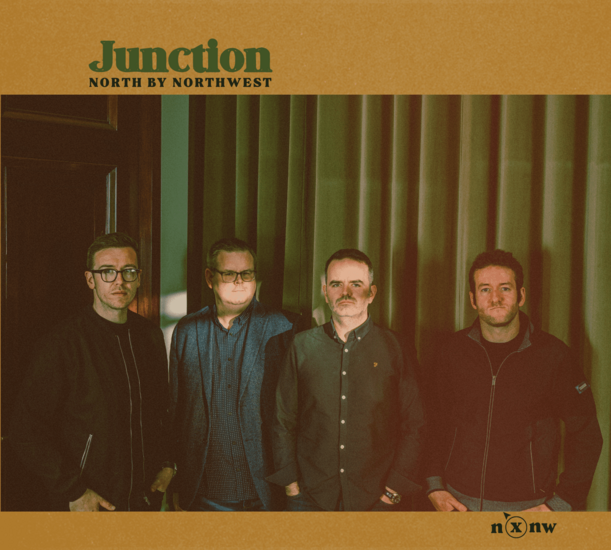Ranger Leonard “Bud” Lomell, a 2nd lieutenant, in his dress uniform.
Between the Lines / By Peter McDermott
Tom Brokaw is one of a very small group of authors who’ve coined a term with a book title. His “The Greatest Generation,” a huge bestseller first published in 1998, began as a simple idea. It’s comprised of interview profiles of Americans who experienced World War II with the armed forces abroad or on the home front.
One of his subjects grouped in the “Heroes” section of the book is Leonard “Bud” Lomell, a Toms River, N.J., lawyer who had a distinguished military career with the U.S. Army’s 2nd Ranger Battalion.
Shortly after his birth in Brooklyn in 1920, Lomell was adopted into a working-class Scandinavian family, which then migrated to the Jersey Shore. He grew up pampered by his parents and older siblings, but they were terribly poor. When the time came, his housepainter father told him in tears that couldn’t afford to send him to college.
Lomell made it to Tennessee Wesleyan College, nonetheless, by combining an athletic scholarship with a work program. Shortly after he graduated in 1941, he joined the army and was part of an elite squad involved in the Normandy invasion in 1944. It was the “beginning of a long war” in Europe for the New Jersey native, Brokaw wrote. He was later awarded the Distinguished Service Cross and the Silver Star.
Brokaw asked the veteran what he thought of “Saving Private Ryan,” the Hollywood premiere of which he’d attended as a special guest. Lomell said he was impressed with how Steven Spielberg recreated the chaos and bloodshed of the D-Day landing, but he had several issues with the movie as it progressed. Brokaw included two in his narrative: “Tom Hanks as a Rangers captain, he said, ‘should never walking around with his men, all talking loudly in broad daylight. That would only bring in German mortars.’ Also, Bud noted that Hanks and his men were much older than the soldiers had actually been. ‘We were all 18 or 19 years old; I was one of the older ones at 24,’ he points out.”

Once upon a time we sent teenagers overseas to fight wars and they had little say in the matter. Nowadays, there are lot of folks who think that young people — the late Justice Scalia was in that camp — shouldn’t overly worry themselves about health insurance and they most certainly shouldn’t have to pay a tax (as the ACA mandate was constructed) for not having it.
One might say our attitudes about personal and civic responsibility either have changed or have become rather flexible depending on the issue.
The idea, however, of young adults being mostly healthy is arguably a rather new one. Advances in medicine have helped and society’s care of children has improved immeasurably. In Lomell’s time, young adults had afflictions that were sometimes the result of childhood illnesses, and which prevented them being considered for service in the armed forces. Rheumatic fever was one, as it could weaken the heart muscles. Polio was another, although many who had that infectious disease would recover and show no long-term ill effects. The disease didn’t stop future Washington Post editor Ben Bradlee joining the navy (he was interviewed for Brokaw’s book, but the polio episode at age 14 wasn’t referred to).
Some didn’t even get the option to volunteer or to get turned down for military service. On a beautifully sunny day this past summer, I found myself walking alongside the railings of a Jewish cemetery and every so often I’d stop to read the gravestones. It struck me how many dating to the interwar years were for adolescents, young adults or people in early middle age.
Parents disappeared
And, let’s not forget the epidemic that bypassed the most vulnerable in our society — the very young and the elderly – and killed the healthy.
In 2006, I interviewed 92-year-old actor of screen and stage Kevin McCarthy, who could recall the pandemonium in Minneapolis on Nov. 11, 1918, the day World War I ended. "Whistles were blowing, bells ringing, horses braying; there were automobile horns - all kinds of noise," he said.
He remembered himself, three months short of his 5th birthday in the care of his paternal grandparents, as "this little kid, who was standing in a pile of snow at 11 o'clock in the morning, and wondering what had happened to his parents, who had disappeared suddenly.” His father had died on Nov. 6, his mother on Nov. 7 — two victims of the worldwide influenza epidemic that claimed 20 million lives.
The libertarians among us want only public spending for defense. This is sometimes taken to an extreme that departs from the spirit of the dogma. Take the senior member of the liberty-loving Freedom Caucus who acquired for his congressional district a contract to build a ship the navy didn’t want — or least, not yet, as it was waiting a year or two to consider some technological changes that were coming down the pike. The same congressman would no doubt whine about “our tax dollars” when they’re spent towards the health care of demographic groups that don’t vote for him.
Members of the Freedom Caucus, indeed the entire GOP with a few honorable exceptions, have preferred to ignore the warnings from a group of retired U.S. generals and admirals who studied the national security implications of climate change in 2007.
“Economic and environmental conditions in already fragile areas will further erode as food production declines, diseases increase, clean water becomes increasingly scarce, and large populations move in search of resources,” their report said. “Weakened and failing governments, with an already thin margin for survival, foster the conditions for internal conflicts, extremism, and movement toward increased authoritarianism and radical ideologies.”
Diseases abroad, as if we needed reminding, can have national security implications, but the potential is there for problems at home, too.
More generally can we separate out one type of public spending from another? Consider the case of Bud Lomell, who after returning from Europe studied law at La Salle University and Rutgers University. He began dating Charlotte, who was studying in a public health nursing program at College of Seton Hall. They married on June 6, 1946, the 2nd anniversary of D-Day. The couple had three daughters and also raised a niece and nephew who’d been orphaned. Theirs was, like a lot of mixed marriages can be (she voted Democratic, while he was a Republican), a happy one.
Giving back
Lomell passed the bar in 1951 and established a very successful large practice, with his wife working there as a bookkeeper. He was considered ahead of his time in hiring people from different ethnic backgrounds and in showing zero tolerance when it came to sexual harassment. And the lawyer, who died in 2011 at age 91, gave back to the community by being involved as a leader in every aspect of the civic life of Toms River.
“The GI Bill was Lomell’s ticket to a career he could not have expected to have before the war,” Brokaw wrote.
Now, Lomell was a man of obvious drive and intelligence. He already had a college education before enlisting. He had survived war in Europe and thus could be expected to make it in a robust post-war economy without any assistance. That surely would have to be the libertarian position, and the way advocated by Ayn Rand.
However, most Americans would not begrudge any person who had served in the armed forces, whether on the frontline or not, the financial means to improve his or her educational resume.
The point is that having conceded the principle of government involvement in enhancing the life chances of a healthy adult male, we can hardly object to a radical intervention to deal with a problem like child poverty.
But Speaker Paul Ryan does object. He believes, without any real supporting evidence, that things work out better in the long run if you favor the rich. Frustrated with that sort of thinking back in 1923, economist John Maynard Keynes wrote: “In the long run we are all dead.”








